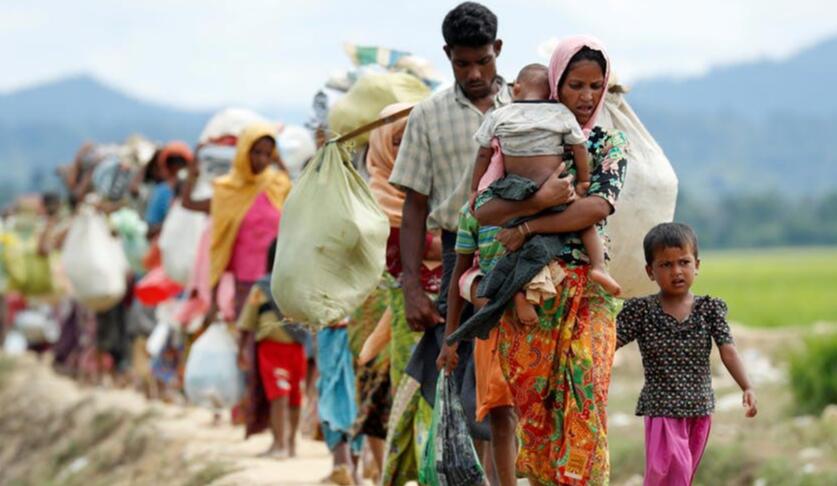While the current dispensation of the United States led by Donald Trump is hell bent to deport illegal immigrants from their country, the Supreme Court of India wants the illegal infiltrators to have the same right as that of Indian citizens. The Supreme Court of India reaffirmed on Wednesday that no child should face discrimination in education, including children of Rohingya refugees who are struggling to secure school admissions. The bench, comprising Justices Surya Kant and N Kotiswar Singh, made this observation while hearing a Public Interest Litigation (PIL) filed by the NGO Rohingya Human Rights Initiative.
The PIL seeks directives to ensure school admissions and government benefits for Rohingya refugee children without requiring Aadhaar cards or any proof of Indian citizenship. The petitioner’s counsel, Senior Advocate Colin Gonsalves, argued that these refugees face a dire situation as they are unable to gain admission to schools.“These are the persons who are not able to get admissions. It is a desperate situation,” Gonsalves told the Court.
In response, the Supreme Court sought specific details regarding the places of residence of Rohingya families before determining possible relief measures. However, the Court was cautious about disclosing personal details, particularly of minor children, and instead asked for details about the parents. “Don’t tell us about students. Tell us about parents. Where are they staying? Tell us house numbers, a list of families, some proof of where they are … Let us not expose any child,” the bench stated.
Gonsalves pointed out that Rohingya refugees possess identity cards issued by the United Nations High Commissioner for Refugees (UNHCR), confirming their refugee status. The Court assured that once it verifies the details of their residence, it will explore ways to facilitate access to education for Rohingya children. The matter is scheduled for further hearing on February 28.
Earlier, the Delhi High Court had dismissed a similar petition urging the Delhi government to grant school admission to Rohingya refugee children. Instead, the High Court had suggested that the Union Ministry of Home Affairs be approached for intervention, asserting that courts should not serve as the medium for such requests. Additionally, an appeal concerning the same issue, filed by Social Jurist, A Civil Rights Group, against the Municipal Corporation of Delhi, is currently pending before the Supreme Court. When the appeal was last heard on January 27, the Court permitted the petitioner to file details of Rohingya families living in regular residential areas rather than makeshift camps.
The Supreme Court’s reaffirmation of the right to education without discrimination marks an important development in the ongoing struggle of Rohingya refugees in India. The upcoming hearing will likely determine the extent of relief the judiciary can provide to ensure access to education for these children.
